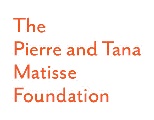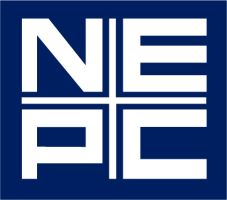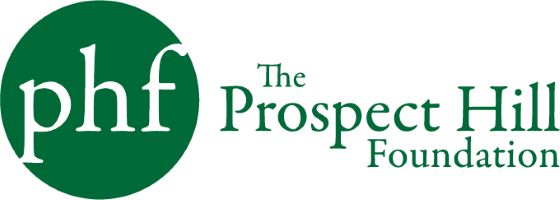
How to Train a Happy Mind
Book Talk with Paul Miller (DJ Spooky) and Scott Snibbe
Friday, May 17, 2024
7:00 PM–8:30 PM
Join us for a lively discussion on the Rubin stage with Paul Miller (DJ Spooky) and Scott Snibbe about Snibbe’s new book, How to Train a Happy Mind. Scott and Paul will talk honestly about when they’ve been at their best and worst in lives filled with art, music, and relationships—and how thousand-year-old Indo-Tibetan analytical meditation techniques are still relevant today for achieving a happy mind, fulfilling relationships, and a better world. Premium tickets include a copy of the book. A book signing will follow the program.
About the Book
Featuring a foreword by His Holiness the Dalai Lama, How to Train a Happy Mind introduces an eight-step meditation program inspired by the ancient Buddhist path to enlightenment yet firmly grounded in modern science. Breaking the path down into concise steps and written in a relatable tone with plenty of references to popular culture, the book helps us understand how our mind can be both the source of our problems and the source of our solutions.
About the Speakers
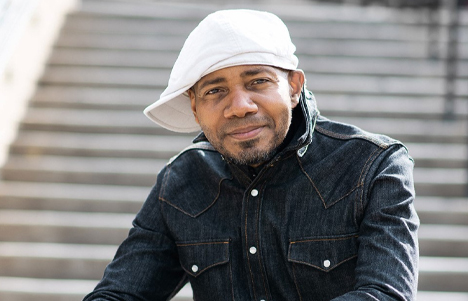
Paul Miller (aka DJ Spooky), a graduate of Bowdoin College, is a writer, artist, and musician who lives and works in NYC. His award-winning first book Rhythm Science was published by MIT Press in 2005, followed by Sound Unbound in 2008, and The Book of Ice in 2011. Miller’s work has been exhibited at museums and biennials throughout the world. He has performed in a wide variety of venues, including Tate Modern, the Guggenheim Museum, and the Herod Atticus Theater at the Acropolis, and has collaborated with a wide variety of artists from Chuck D to Yoko Ono. The iPhone app he developed with Music Soft Arts has been downloaded several million times. He has been a regular presence at the Rubin and was last on stage in the Karma series in 2018. www.djspooky.com
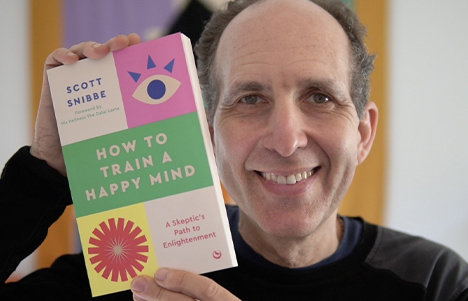
Scott Snibbe is a new media artist and the executive director of A Skeptic’s Path to Enlightenment, and host of its popular meditation podcast. A pioneer of interactive art, Snibbe’s installations have been incorporated into concert tours, museums, and airports, and he has collaborated with musicians and filmmakers, including Björk, Philip Glass, Beck, and James Cameron. His work can be found in the collections of MoMA, the Whitney Museum of American Art, and other institutions. As a 25-year student of Tibetan Buddhism, Snibbe’s teachers include Ven. Sangye Khadro, Lama Zopa Rinpoche, Gyumed Khensur Rinpoche Lobsang Jampa, and His Holiness the Dalai Lama. Through their inspiration, he leads meditation classes and retreats worldwide that infuse the pure lineage of the great Buddhist masters with science, humor, and the realities of the modern world. This is his first appearance at the Rubin.
Lead support for the Rubin Museum is provided by Bob and Lois Baylis, Barbara Bowman, E. Rhodes and Leona B. Carpenter Foundation, Noah P. Dorsky, Fred Eychaner, Christopher J. Fussner, Agnes Gund, The Robert H. N. Ho Family Foundation Global, the Estate of Lisina M. Hoch, Lilly Endowment, Henry Luce Foundation, The Pierre and Tana Matisse Foundation, Mellon Foundation, Matt and Ann Nimetz, The Randleigh Foundation Trust, Shelley and Donald Rubin, Tiger Baron Foundation, and Ellen Bayard Weedon Foundation.
General operating support of the Rubin Museum of Art is provided by the Milton and Sally Avery Arts Foundation, Daphne Hoch Cunningham and John Cunningham, Anne E. Delaney, Dalio Philanthropies, Janet Gardner, Dan Gimbel of NEPC, Inc., The Prospect Hill Foundation, Basha Rubin and Scott Grinsell, Namita and Arun Saraf, Linda Schejola, Eric and Alexandra Schoenberg, Eileen Caulfield Schwab, Jesse Smith and Annice Kenan, Tsherin Sherpa, Tong-Tong Zhu and Jianing Liu, with generous donations from the Museum’s Board of Trustees, individual donors and members, and corporate and foundation supporters.
This program is supported, in part, by public funds from the New York City Department of Cultural Affairs, in partnership with the City Council.
The Rubin Museum’s programs are made possible by the New York State Council on the Arts with the support of the Office of Governor Kathy Hochul and the New York State Legislature.


